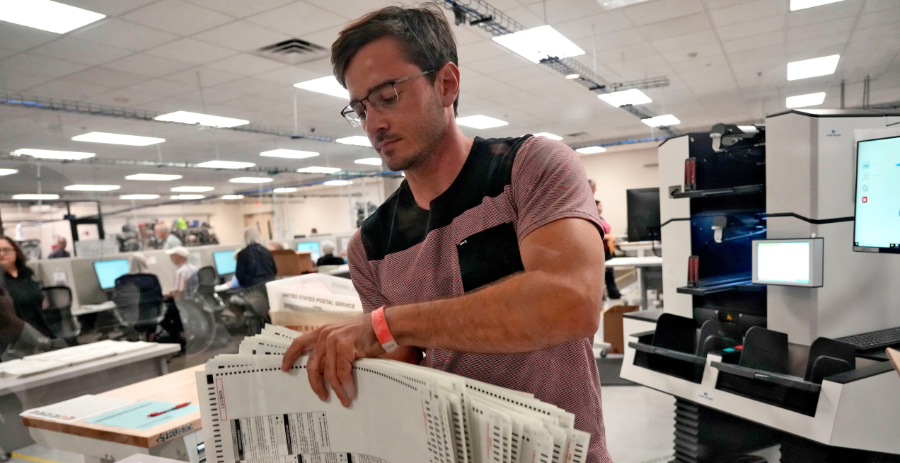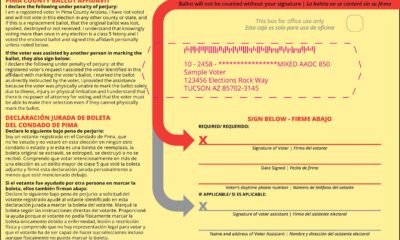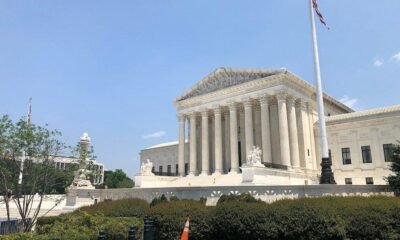9th Circuit Court of Appeals
9th Circuit Rules Legislature’s Proof of Citizenship Voting Law Fueled by Discriminatory Intent

The 9th U.S. Circuit Court of Appeals has determined that the Arizona State Legislature may have acted with “discriminatory intent” when it passed two laws in 2022 aimed at preventing voter fraud.
The court upheld earlier findings that these laws—requiring additional proof of citizenship for federal voters and proof of residence for state voters—were illegal. However, it diverged from the district court’s conclusion by asserting that there was persuasive evidence of discriminatory purpose behind the laws and remanded the case back to the district court for further examination.
Judge Ronald Gould noted, “While some provisions of the Voting Laws are legitimate, many challenged measures are unlawful and act as voter suppression.”
The legislation in question, H.B. 2243 and H.B. 2492, was signed into law by former Governor Doug Ducey and penalized federal-only voters lacking proof of citizenship from voting by mail or in presidential elections. It also required state voter registration applicants to confirm their citizenship, listing birthplace and documentation of residency.
Provisions mandated county recorders to perform regular citizenship checks and to cancel registrations if they had “reason to believe” the individual was not a citizen.
Post-enactment, eight lawsuits arose, culminating in a single legal challenge. U.S. District Court Judge Susan Bolton issued rulings in September 2023 and March 2024, solidifying her judgment in May.
She concluded that parts of the National Voting Rights Act and the Civil Rights Act prevented certain aspects of the laws, prohibiting the state from mandating proof of citizenship for federal voters to vote by mail, and from denying registration based on citizenship attestations.
Although Bolton stopped significant sections of the laws, she found no discriminatory intent behind their passage.
In a recent ruling, Judges Gould and Kim McLane Wardlaw contended that the district court established an excessively high evidentiary standard regarding the intent, suggesting the case be remanded for further inquiry.
The appellate panel criticized the district court for analyzing the context surrounding the legislation—including the contentious political atmosphere post-2020 elections and specific language in lobbying materials—too discretely. They argued that these elements, when viewed collectively, reveal a pattern suggesting discriminatory intent.
Judge Gould expressed, “These distinct pieces of evidence, viewed in context, support an inference of discriminatory intent. Evaluators must analyze the totality of circumstances when assessing legislative intent.”
In a dissent, Judge Patrick Bumatay argued for a more measured rejection of the laws. “Our approach requires deliberation when courts enter the political sphere, and sweeping annulments of state laws are counterproductive,” he wrote. Bumatay accepted that some aspects of the legislation were unlawful but contended that a wholesale invalidation was excessive.
He criticized the majority’s position, deeming the evidence of discriminatory intent to be “weak” and mainly circumstantial.
Senate President Warren Petersen announced via X that the legislature is set to appeal the ruling to the United States Supreme Court.


















